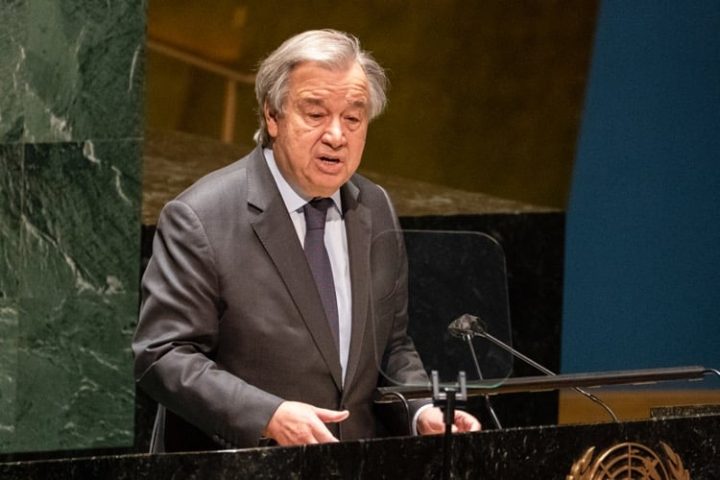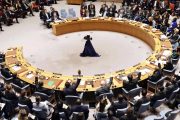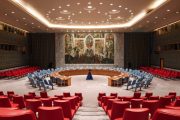
On Monday, the fear merchants at the UN Intergovernmental Panel on Climate Change (IPCC) released the second portion of their Sixth Assessment Report called Climate Change 2022: Impacts, Adaptation and Vulnerability. According to the report, nearly half the world’s population is already at risk from the worst aspects of the supposedly rapidly warming climate.
The fear peddled in this report has been ramped up with Secretary General António Guterres sounding especially dire in a presentation to the media.
“I’ve seen many scientific reports in my time but nothing like this,” Guterres said. “Today’s IPCC report is an atlas of human suffering and a damning indictment of failed climate leadership.”
Guterres went on to describe how Earth is “getting clobbered by climate change,” not in the nebulous near future — but right now. Claiming he was citing “fact upon fact,” the secretary general put the fear machine into high gear.
“Nearly half of humanity is living in the danger zone — now,” Guterres explained. “Many ecosystems are at the point of no return — now. Unchecked carbon pollution is forcing the world’s most vulnerable on a frog march to destruction — now. The facts are undeniable.”
“This abdication of leadership is criminal,” Guterres said. But isn’t he supposed to be one of the leaders?
“It is essential to meet the goal of limiting global temperature rise to 1.5C. And science tells us that will require the world to cut emissions by 45 percent by 2030 and achieve net zero emissions of gasses by 2050,” Guterres said. “But according to current commitments global emissions are set to increase almost 14 percent over the current decades.”
“That spells catastrophe,” the secretary general darkly intoned.
“Adaptation saves lives,” Guterres said. “As climate impacts worsen — and they will — scaling up investments will be essential for survival…. Delay means death.”
The report claims that man-made climate change, so called, is already impacting vast swaths of the planet and it’s already too late in many cases to ward off some consequences of global warming’s impact. But to the degree we might be able to adapt to these changes, lots of money needs to be spent, and quickly.
And the authors of the report want you to know that adaptation to climate change is not a panacea.
“Adaptation is not a get-out-of-jail-free card. There are limits to adaptation,”said Maarten van Aalst, director of the Red Cross Red Crescent Climate Center and one of the report’s many co-authors. “We should reduce greenhouse gas emissions because if we don’t, it’s going to get really bad.”
Of course, all of the changes we need to make in our emissions and our entire consumer culture must have an eye toward social justice, the report makes clear.
“It’s the poor and most marginalized who are most vulnerable,” said one of the report’s 270 authors, urban ecologist Timon McPhearson.
From the report: “Climate resilient development is facilitated by international cooperation and by governments at all levels working with communities, civil society, educational bodies, scientific and other institutions, media, investors and businesses; and by developing partnerships with traditionally marginalized groups, including women, youth, Indigenous Peoples, local communities and ethnic minorities.”
So, when they’re destroying the global economy as we know it, we must be certain to destroy it in an equitable way so that marginalized communities can share in that destruction.
This report, like its sister report released in August, would appear again to be cherry picking the absolute worst climate scenarios even though the scientists themselves believe that those worst scenarios are among the least likely to occur.
The IPCC itself attaches plausibility scenarios and assigns them Representative Concentration Pathways (RCP) and Shared Socio-economic Pathways (SSP) numbers. Lower numbers in the 2-4 range are considered better for mankind. The higher the RCP and SSP scenarios, the worse global warming will be.
At least one close watcher of the IPCC reports, Dr. Roger Pielke, has noted that the IPCC seems to be up to their old tricks of focusing on those worst climate scenarios in their current report.
“The first observation is that the report is more heavily weighted to implausible scenarios than any previous IPCC assessment report,” Pielke tweeted. “In particular, RCP8.5 represents ~57% of scenario mentions. This alone accounts for the apocalyptic tone and conclusions throughout the report.”
Pielke, Jr. explains it far better and in more detail himself.
So, again it seems, the IPCC is using the absolute worst-case scenarios — scenarios that most climate scientists don’t believe are likely — to peddle more fear in their effort to rid the world of reliable fuels and replace them with renewable energies that are unable to keep up with the demand.




